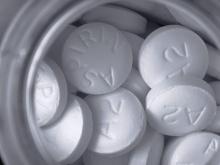Use of aspirin and NSAIDs raises the risk for both diverticulitis and diverticular bleeding, Dr. Lisa L. Strate and her colleagues reported in the May issue of Gastroenterology.
"These findings have important clinical and public health implications, given the prevalence of diverticular disease and NSAID use, particularly in the elderly," said Dr. Strate of the University of Washington and Harborview Medical Center, Seattle, and her associates from Harvard Medical School and Harvard School of Public Health.
Previous case-control studies and one cohort study have reported similar associations, but have focused on very severe disease or have combined the findings on diverticulitis and diverticular bleeding. Differentiating between the two is crucial because they likely have distinct biological mechanisms, the researchers said.
Previous studies also have neither been large enough nor have had extensive enough follow-up to tease out the specific effects of dosage, frequency, duration, and timing of medication use in relation to diverticular complications, as well as to account for important confounders such as diet, body mass index, and physical activity level.
To address these issues, Dr. Strate and her colleagues analyzed data from the Health Professionals Follow-Up Study, a cohort of more than 47,210 male dentists, veterinarians, pharmacists, optometrists, osteopathic physicians, and podiatrists in the United States who were aged 40-75 years at baseline in 1986 and have been followed biennially for 22 years. The data include detailed information on diet, medication use, and diverticular symptoms and treatments.
A total of 29% of the participants reported regular aspirin use (defined as two or more times per week), and 5% reported regular NSAID use. The participants said they used aspirin to treat existing cardiovascular disease (25%), to prevent CVD (58%), to treat headaches (25%), to treat joint or musculoskeletal pain (33%), or for other reasons (7%).
There were 939 incident cases of diverticulitis and 256 incident cases of diverticular bleeding during 859,164 person-years of follow-up.
Compared with men who did not use aspirin or NSAIDs regularly, those who did showed a significantly higher risk of developing diverticulitis (hazard ratio, 1.25 for aspirin and 1.72 for NSAIDs). The associations were similar for diverticular bleeding (HR, 1.70 for aspirin and 1.74 for NSAIDs).
NSAIDs were more strongly associated with complicated diverticulitis than with uncomplicated diverticulitis, whereas aspirin was equally associated with both subtypes of diverticulitis.
"The highest risk of diverticular bleeding was observed in men who used aspirin with moderately high frequency [defined as 4-6 days per week] and in moderately high doses [defined as two to six standard tablets per week]. For diverticulitis, the risk appeared somewhat greater for regular NSAID users than for regular aspirin users, and the risk increased with frequency of aspirin use but not with higher doses," the investigators said.
"To address the possibility of confounding by comorbid illness, we additionally adjusted our analyses for CVD and osteoarthritis, the two most common indications for aspirin use in this cohort. In this analysis, the relationships between aspirin/NSAID use and diverticulitis remained largely unchanged."
"For diverticular bleeding, the association with aspirin use was not materially altered, but the association with NSAIDs was somewhat attenuated," they said.
"There are several possible mechanisms by which aspirin and NSAIDs might promote diverticular complications," the researchers added.
Both medications are thought to damage the colon directly by topical injury, and to do so indirectly by impairing prostaglandin synthesis, which in turn compromises mucosal integrity and increases mucosal permeability, allowing the influx of bacteria and other toxins.
Both also are likely to promote blood loss from mucosal lesions by inhibiting platelet aggregation.
This study was limited in that it involved only well-educated men, so the results may not be generalizable to other populations.
In conclusion, given the significantly elevated risks of diverticulitis and diverticular bleeding in users of aspirin or NSAIDs, analgesic medications should be selected carefully in patients known to have these disorders, particularly in those who have already had complications, Dr. Strate and her associates said.
This study was supported by the National Institutes of Health. Two of the authors received support from the Damon Runyon Cancer Research Foundation and the American Gastroenterological Association, respectively. No conflicts of interest were reported.


